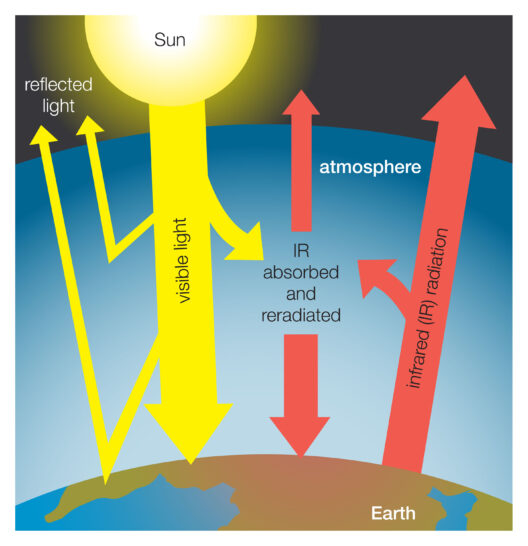In recent years, the conversation surrounding climate change has morphed into a complex tapestry that intertwines politics, science, and popular sentiment. Among the multitude of voices in this discourse, the perspective of the Republican Party has garnered particular attention. Historically, this faction has exhibited a mixed bag of opinions on climate change, oscillating between skepticism and a gradual acknowledgment of environmental responsibility. The exploration of what Republicans truly think about climate change reveals not just a political stance but a broader ideological struggle.
Delving into the fabric of GOP opinions on climate change necessitates a closer examination of the prevailing sentiments and the political ecosystem that shapes them.
Assessing the Landscape: Evolving Perspectives on Climate Science
While many Republicans have traditionally voiced skepticism about the implications of climate change, this sweeping generalization does an injustice to the nuanced views within the party. A segment of this political group has begun to pivot towards a more constructive dialogue surrounding environmental issues. The shift can be attributed to several factors, most notably the emergence of younger leadership and a growing emphasis on sustainability among constituents.
The dissent within the party often arises from a profound belief in individual freedoms, an economic outlook grounded in capitalism, and a general mistrust of governmental intervention. However, divergent voices advocating for action against climate change are increasingly visible, suggesting a possible realignment of priorities. This new perspective is underscored by an understanding that climate change is not merely an environmental issue but an economic, social, and security challenge that must be addressed holistically.
For some Republicans, the crux of climate change concerns pivots on its economic implications. Many perceive a transition towards renewable energy sources such as solar, wind, and hydro-influenced innovations as an inherent opportunity for job creation and technological advancement. This consideration of climate policy through an economic lens signifies a paradigm shift within the party and presents a ripe opportunity for engaging discourse on actionable solutions.
Bridging Divides: The Interplay of Ideology and Environmentalism
A pivotal aspect of the ongoing debate lies in the interplay of ideological commitments. Republicans are navigating a complex relationship with environmentalism, balancing their advocacy for personal liberty with the ethical imperatives of addressing climate change. The increasing frequency of natural disasters, extreme weather phenomena, and public health issues related to environmental degradation has catalyzed some Republicans to stand against the tide of outright dismissal of climate science. The juxtaposition of libertarian ideologies with green initiatives creates a fertile ground for innovative discussions around policy reform.
Moreover, the concept of “conservative environmentalism” is gaining traction. This framework champions stewardship of natural resources and promotes solutions that uphold free-market principles while safeguarding the environment. Policymakers are beginning to recognize that advocating for robust climate action does not necessitate abandoning core Republican values. Rather, it offers a novel avenue through which the party can retain institutional credibility while affirming its commitment to sustainable development.
Grassroots Movements: The Power of Change from Within
Looking beyond party leadership, grassroots movements are playing an integral role in reshaping Republican perspectives on climate change. Organizations and coalitions that emphasize sustainable practices are gaining popularity, often positioning the dialogue around climate action in a manner that resonates with core Republican values: personal responsibility, innovation, and economic growth. Local initiatives, be it in renewable energy investment or conservation efforts, serve as testaments to the effectiveness of a proactive approach within the Republican base.
Moreover, grassroots efforts are highlighting remarkable narratives of entrepreneurial ventures in the renewable energy sector, showcasing how combating climate change can lead to lucrative opportunities. By focusing on success stories that illustrate innovation in green technologies, proponents of climate action are fostering a more positive narrative that prompts Republicans to reassess their stance on environmental policies.
The Future of Republican Engagement with Climate Change
The future trajectory of Republican engagement with climate change is undoubtedly intricate. As younger, more environmentally conscious voters begin to exert their influence on the political landscape, an opportunity for transformation arises. The dual pressure of public sentiment and an increasingly clear scientific consensus on climate change may serve as catalysts for action. Republican leaders have the chance to champion environmentally sound policies that align with their constituents’ evolving priorities while securing a competitive edge in an increasingly eco-conscious electorate.
In conclusion, the Republican approach to climate change is marked by a dichotomy of tradition and evolution. While skepticism and resistance continue to exist, there is a burgeoning recognition of the significance of environmental issues within the party. The transition may be gradual, but it is punctuated by the emergence of innovative thinkers, grassroots activism, and an evolving public to reshape the dialogue. Ultimately, the pathway to a Republican party that embraces a proactive stance on climate change may not only facilitate environmental sustainability but could also redefine the political landscape in unexpected ways.





